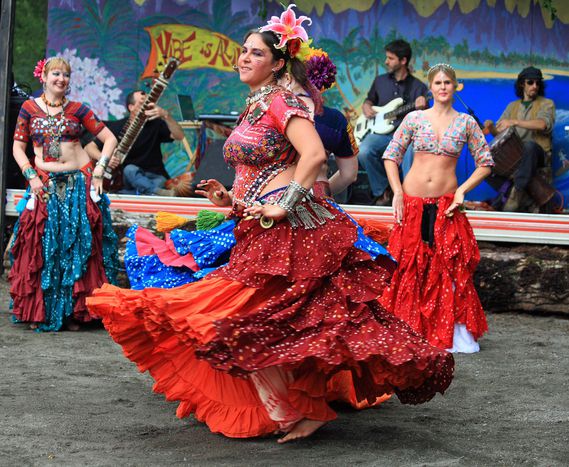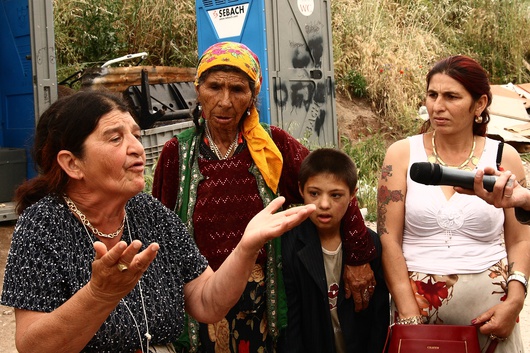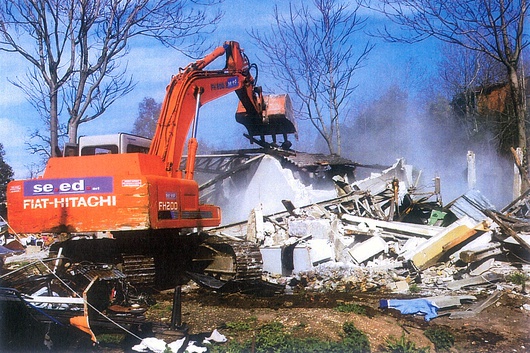
Political posturing blinds us to the real Romani tragedy
Published on
Interior minister Manuel Valls is trying to cash in on the electorate's mistrust of France's Romani population. His fellow Socialist Party members protest to assert their liberal credentials. All this political posturing draws attention away from what is a very human tragedy
Under the Eiffel Tower, a woman asks if I speak English. Of course, I only understand French. Those who can, by some mistake, speak their native language, are surrounded; the crowd describes sick relatives, a student project, or the threat of debt-collectors. After the innocence, the hard sell: a hand outstretched for change. Though the stories may be false, the poverty is real, and the children are thin. The tourists hold tightly to their wallets; the crowd is largely ignored, and resentment grows between the rich and the Roms.
'Verbal abuse is a rite of passage'
The Travelling community in France is frequently labelled 'the Rom problem', with heavy-handed policing the most popular solution. Only last week, Roma schoolgirl Leonarda Dibrani was arrested in front of her classmates, sparking student protests across Paris. Having received a presidential pardon, she remains in Kosovo, where her family claim to have been assaulted.
 Racism is rife, and the government purports to represent its people - for many in France, the Romani are undesirable. It is not only petty crime that they have become associated with, but violent assault, and every Parisian has his story. Verbal abuse is a rite of passage, physical abuse a badge of honour. A Rom once asked me for a light, and spat at me when I refused, a friend remembers, proudly.
Racism is rife, and the government purports to represent its people - for many in France, the Romani are undesirable. It is not only petty crime that they have become associated with, but violent assault, and every Parisian has his story. Verbal abuse is a rite of passage, physical abuse a badge of honour. A Rom once asked me for a light, and spat at me when I refused, a friend remembers, proudly.
The idea that the Roma are pushed towards crime by circumstance is given little credence, but the poverty is abject, and the richest streets of Paris house its poorest residents. On Boulevard Saint-Michel, the crowds part about a child in the road. Unwashed and underfed, he is suspected of pickpocketing. Away from the Tour, a woman begs by a cash-point. The slick, chic Parisians pass, and few have time or money. By the Boulevard Saint-Germain, the children of Roma families piss across from the boutiques. On the Champs Elysées, men pray on the paving. Their clothes are torn, and a veil drawn over their faces. They are treated with an uneasy respect; widely considered 'unpredictable', they offer a cup of coins, and do not look up.
Politicians play to the gallery
It is not naive to expect a country that spends ten billion Euros on job creation to provide work and support for those least fortunate. Nor is it is idealistic to expect France to cater for its residents, without resorting to allegations of illegal immigration. Despite this, decades of xenophobia continue to influence governmental decision, with former president Nicolas Sarkozy, for example, expelling large numbers of Travellers from France, in a move branded 'discriminatory' by the European Court of Human Rights.
 The current Socialist Party interior minister, Manuel Valls has raised eyebrows by perpetuating Sarkozy’s no-nonsense approach, claiming, ‘The Roma should return to their country,’ and continuing to expel them. Aside from the UMP (the centre right Union for a Popular Movement, Ed.), the Front National treat the Romani with their usual bigotry. Rarely is the root cause of poverty addressed, whether amongst the public, or in politics - the Socialists open their mouths, and are the quietest of all.
The current Socialist Party interior minister, Manuel Valls has raised eyebrows by perpetuating Sarkozy’s no-nonsense approach, claiming, ‘The Roma should return to their country,’ and continuing to expel them. Aside from the UMP (the centre right Union for a Popular Movement, Ed.), the Front National treat the Romani with their usual bigotry. Rarely is the root cause of poverty addressed, whether amongst the public, or in politics - the Socialists open their mouths, and are the quietest of all.
As I walk by the Seine, a Rom asks for change.
I've been in Paris long enough, and I refuse. The street titters as the woman shouts abuse. Her intention is clear, if the words aren't, and at last I have a story to tell.



